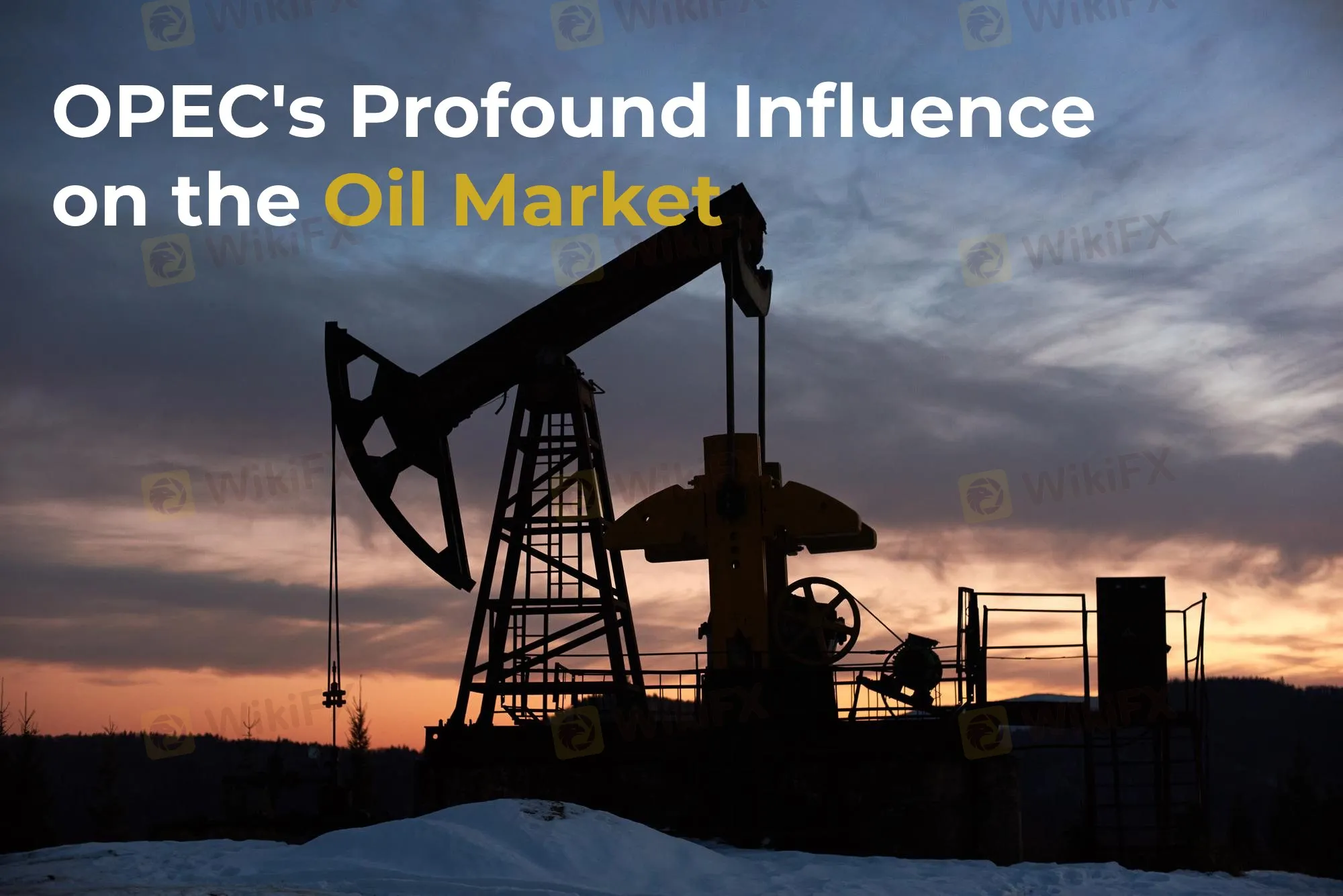简体中文
繁體中文
English
Pусский
日本語
ภาษาไทย
Tiếng Việt
Bahasa Indonesia
Español
हिन्दी
Filippiiniläinen
Français
Deutsch
Português
Türkçe
한국어
العربية
OPEC's Profound Influence on the Oil Market
Abstract:At present, oil prices remain relatively stable, but global economic recovery and shifting market demands continue to drive price fluctuations. Amid an uncertain global economic and geopolitical landscape, OPEC’s policies and actions remain key determinants of oil prices.

Currently, oil prices are hovering between $70 and $75 per barrel, maintaining a steady range. The slight rebound in prices is largely due to an uptick in global demand, along with growing concerns about geopolitical risks. While the global economic outlook remains uncertain, the gradual recovery of major economies has boosted crude oil demand, pushing prices higher. Investors and analysts are closely monitoring OPECs production policies to see how the organization adjusts in response to changing global energy needs.
How OPEC and Geopolitics Affect Oil Prices
OPEC plays a pivotal role in influencing oil prices. As a major global oil-producing organization, every decision OPEC makes regarding production cuts or increases directly impacts global prices. For example, in late 2019 and early 2020, OPEC, along with non-OPEC nations, decided to reduce production, successfully driving up oil prices. In addition, geopolitical factors are another significant driver of oil price volatility. Tensions in regions like the Middle East can disrupt oil supply, causing prices to surge. In such cases, OPEC often adjusts production levels to respond to external risks and stabilize the market.
Understanding OPEC, OPEC+, and Non-OPEC Countries
OPEC (Organization of the Petroleum Exporting Countries) is an international organization founded in 1960, consisting of 14 major oil-producing countries. These nations control around a quarter of global oil supply, with significant members like Saudi Arabia, Iraq, and the UAE.
OPEC+ is a cooperative alliance formed between OPEC and some non-OPEC oil-producing nations, including Russia, with the goal of jointly managing global oil prices through coordinated production cuts or increases.
Lastly, non-OPEC countries are those that are not part of OPEC but are still major oil producers, such as the United States and Canada. These countries also influence global oil prices, particularly with the rise of U.S. shale oil production, which has increasingly impacted market trends in recent years.
In conclusion, the decisions and strategies of OPEC, OPEC+, and non-OPEC nations directly shape the volatility of global oil prices through their production adjustments and geopolitical considerations.

Disclaimer:
The views in this article only represent the author's personal views, and do not constitute investment advice on this platform. This platform does not guarantee the accuracy, completeness and timeliness of the information in the article, and will not be liable for any loss caused by the use of or reliance on the information in the article.
Read more

Interactive Brokers Enhance Account Security with FDIC Coverage
Interactive Brokers now offers up to $5M FDIC insurance for individual accounts, boosting protection on cash held in brokerage accounts starting May 2025.

SFC Issues Restriction Notice to GA (Int’l) Capital Management Limited Over Regulatory Concerns
The Securities and Futures Commission (SFC) of Hong Kong has issued a restriction notice against GA (Int’l) Capital Management Limited (GCML), raising serious concerns about the firm’s integrity, reliability, and competence in carrying out its regulated activities.

Nonfarm Data Lifts Market Sentiment, U.S. Stocks Rebound Strongly
U.S. nonfarm payrolls for May slightly exceeded expectations, stabilizing investor sentiment and easing fears of a hard landing. This upbeat data sent U.S. equities broadly higher, led by tech stocks, with the Dow and S&P 500 posting significant gains. However, behind the optimism lies a fresh round of market debate over the Federal Reserve’s rate path, with uncertainty around inflation and interest rates remaining a key risk ahead.

OctaFX Flagged by Malaysian Authorities
OctaFX has been officially listed on warning lists by both Bank Negara Malaysia (BNM) and the Securities Commission Malaysia (SC). These alerts raise serious concerns about the broker’s status and whether it is legally allowed to operate in Malaysia.
WikiFX Broker
Latest News
IronFX Broker Review 2025: A Comprehensive Analysis of Trustworthiness and Performance
OctaFX Flagged by Malaysian Authorities
Nonfarm Data Lifts Market Sentiment, U.S. Stocks Rebound Strongly
Interactive Brokers Enhances PortfolioAnalyst with New Features
Why Your Worst Enemy in Trading Might Be You
Errante Broker Review
SFC Issues Restriction Notice to GA (Int’l) Capital Management Limited Over Regulatory Concerns
Interactive Brokers Enhance Account Security with FDIC Coverage
Exnova Forex Broker Scam: Blocked Accounts, Lost Funds
Currency Calculator


